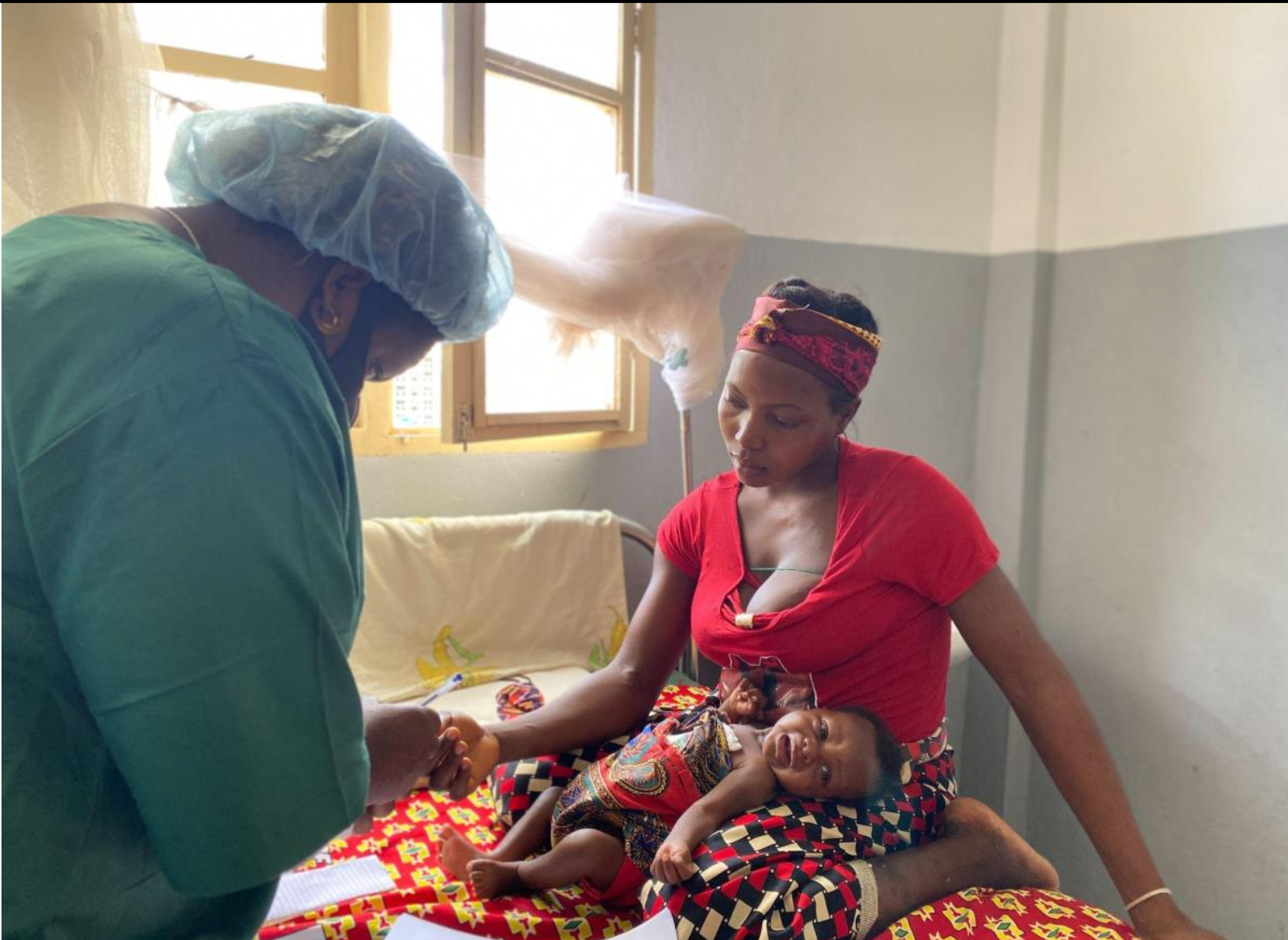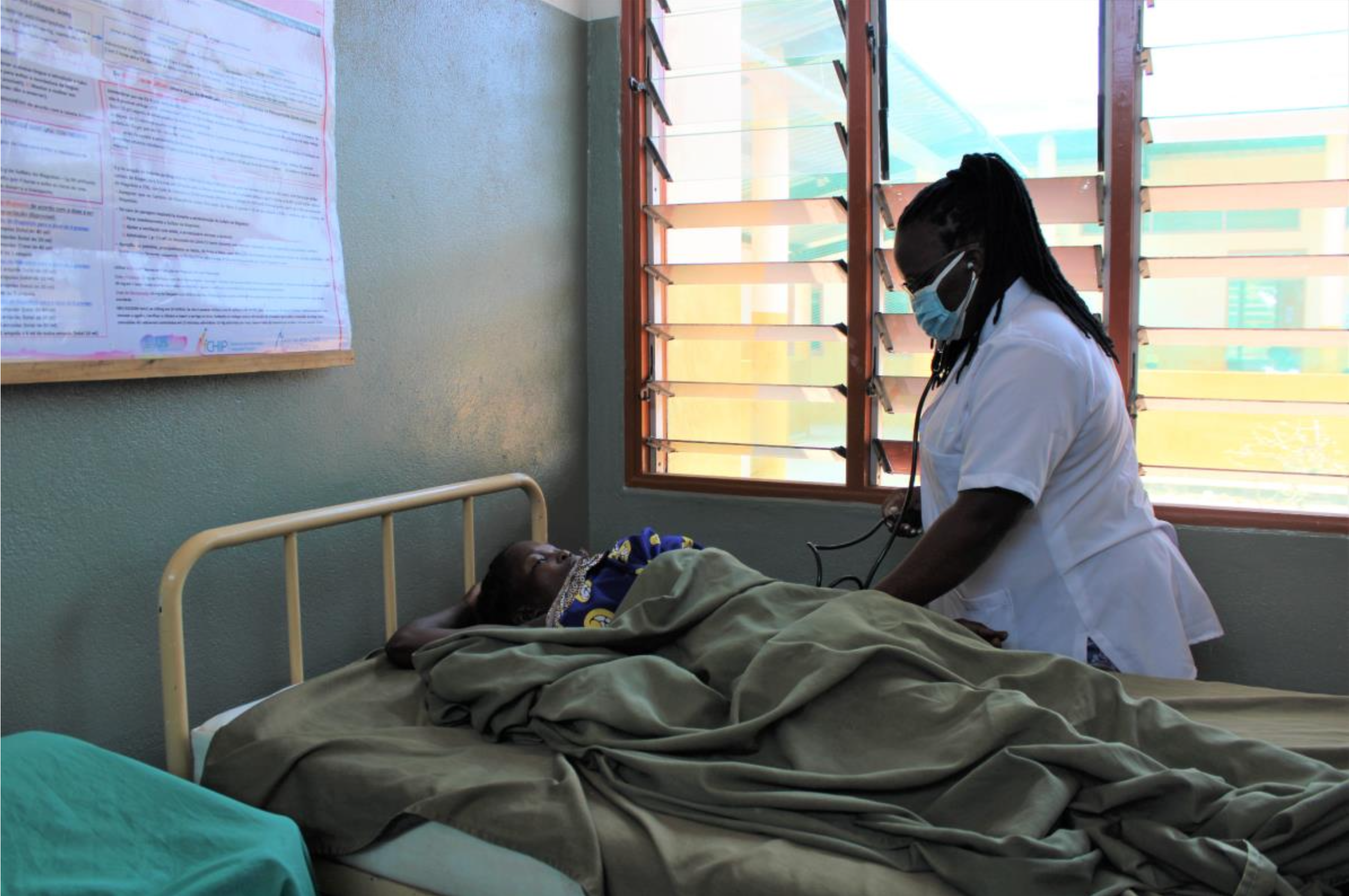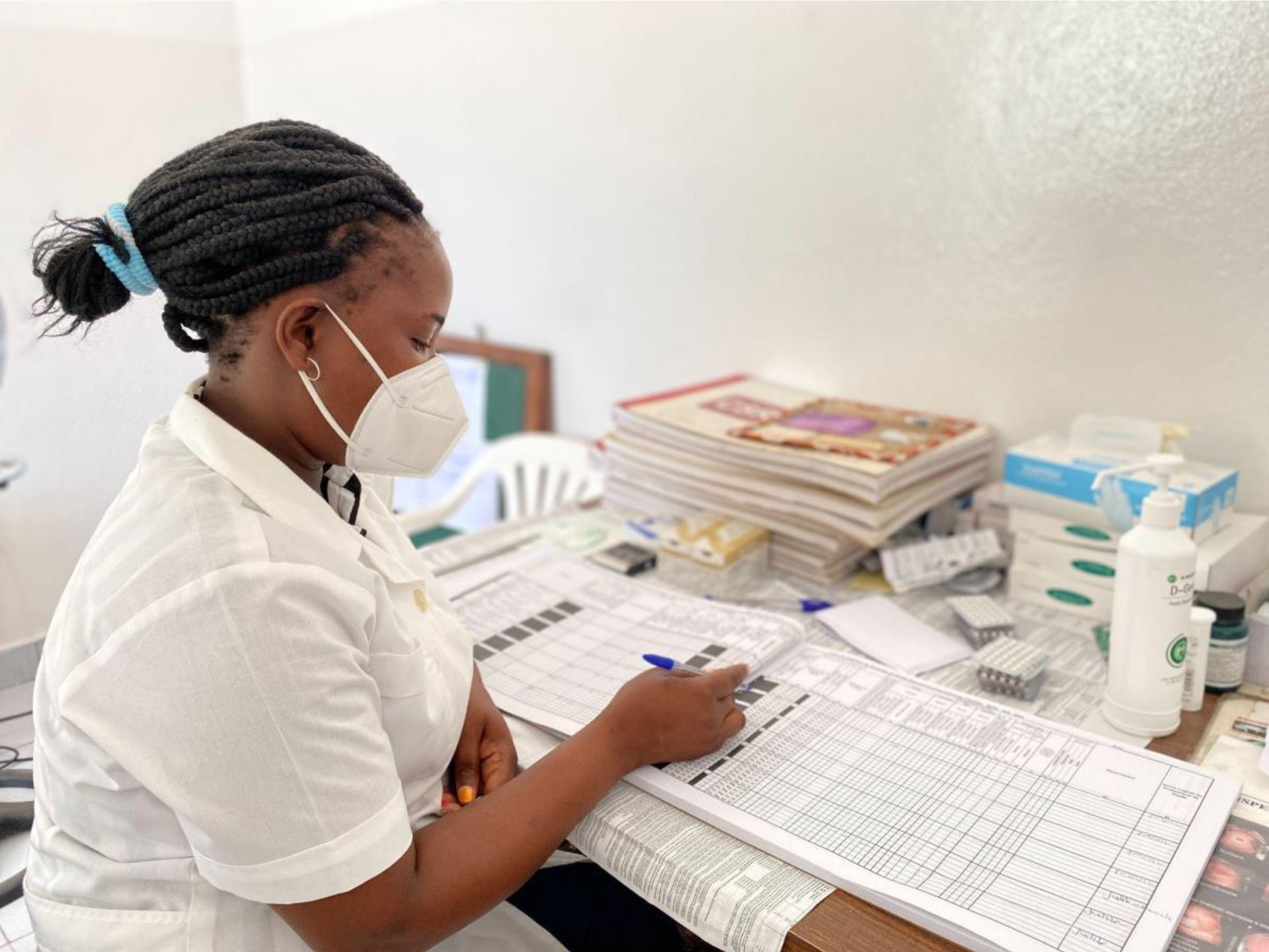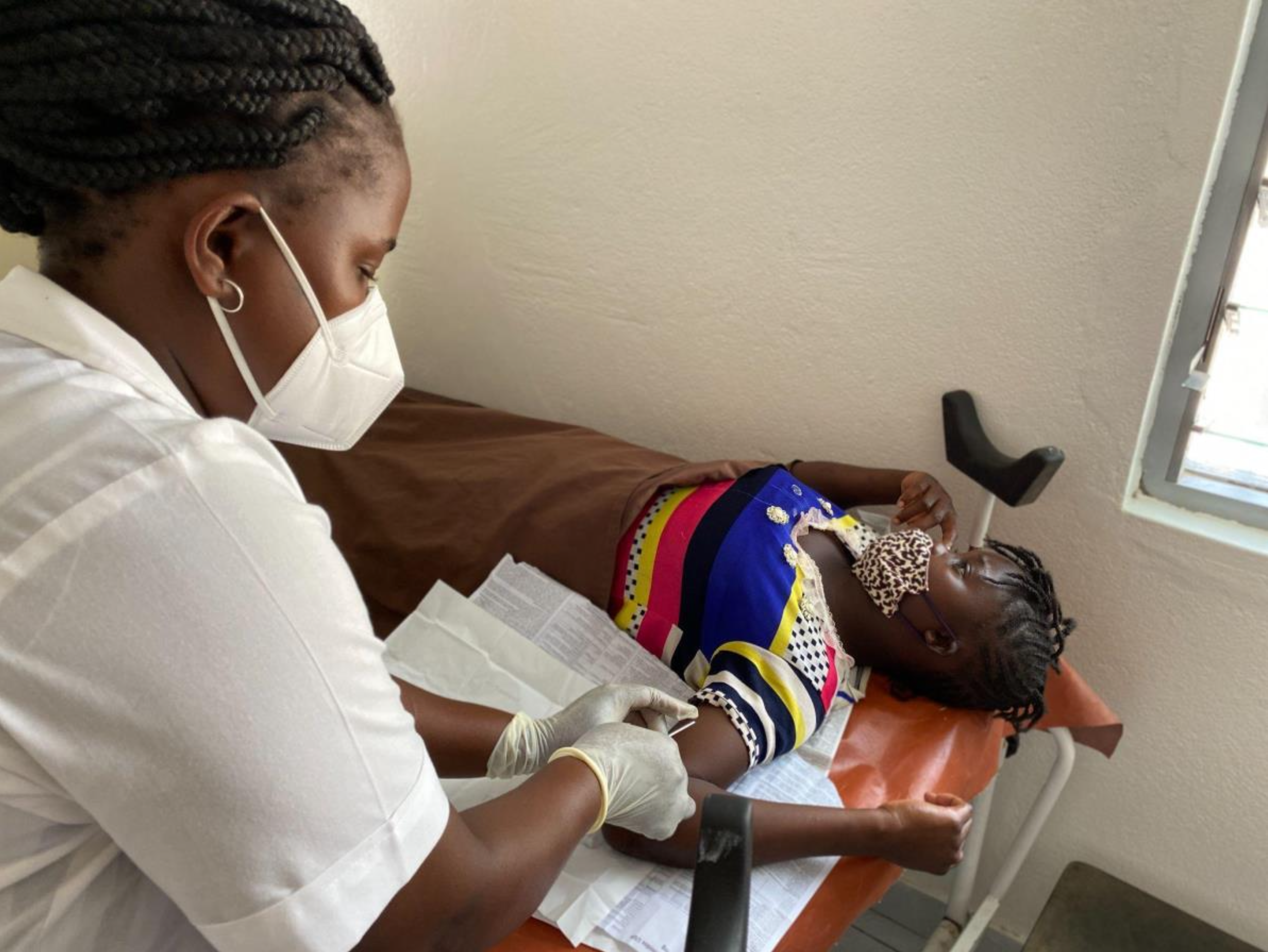 Investing in Crisis-Affected Health Facilities and Strengthening Access to Life-Saving Sexual and Reproductive Health Services in Mozambique
Collaboration between the Government of Mozambique and UNFPA to support women and girls affected by Tropical Cyclone Idai in Sofala Province
Investing in Crisis-Affected Health Facilities and Strengthening Access to Life-Saving Sexual and Reproductive Health Services in Mozambique
Collaboration between the Government of Mozambique and UNFPA to support women and girls affected by Tropical Cyclone Idai in Sofala Province

Challenges
Maternal health services in Mozambique are inadequate to meet the needs of the country’s growing population. For instance, in Sofala province, the maternal mortality ratio (MMR) was 355 (Census 2017), while neonatal mortality rate remained as high as 41 (DHS 2011). This is particularly the case for specialized services where the quantity and quality of skilled birth assistance is low and the availability of equipment for life-saving procedures, such as C-sections, is also limited.
Mozambican adolescents (aged 15-19) have a high fertility rate (180 per 1,000 girls aged 15-19 years old). In 2018, 46% of adolescents between 15-19 years-old were either pregnant or had already had a child, representing an increase when compared to 2003 (41%). This finding is inextricably linked with increases in school dropout rates, reduced household autonomy, poor sexual and reproductive health outcomes, newborn health risks, gender-based violence and the perpetuation of the circle of poverty.
In 2019, Cyclone Idai destroyed many health facilities in Central Mozambique, severely impacting the continuity of health services, particularly for women and girls of reproductive age and with disabilities, and those most financially vulnerable. A rapid joint assessment conducted by the Government, Humanitarian Agencies, and partnering NGOs of the cyclone-affected areas showed that the emergency room of the Beira Central Hospital was extensively damaged, rendering it non-functional. Compounded by the influence of COVID-19, the reconstruction and recovery of disaster-affected areas have been even more difficult.
More specifically, the damage to medical equipment and health facilities resulted in a life-threatening gap in the delivery and availability of life-saving SRH services, such as safe abortion, family planning consultation, Antenatal Care (ANC), clean and safe delivery, Basic Emergency Obstetric and Neonatal Care (BEmONC) and Comprehensive Emergency Obstetric and Neonatal Care (CEmONC), Postnatal Care (PNC), Postpartum Care (PPC), and HIV prevention and treatment. Without the continuity of such services and timely medical attention, girls and women are at increased risk of severe physical and psychological consequences, including – but not limited to – obstructed labor, obstetric fistula, neonatal death, and maternal mortality.
Towards a Solution
Based on the Post Disaster Needs Assessment results in Sofala province, the United Nations Population Fund (UNFPA) and the provincial-level Government partner – the Provincial Directorate of Health (DPS Sofala) – met together to define the most urgent needs. They concluded that there was a need to direct support to the refurbishment of the hospital and health facilities in Sofala through the procurement and distribution of medical equipment and consumables, safeguarding the well-being of girls and women in the aftermath of the cyclone and address gaps in life-saving SRH services.
Since December 2019, with funding from the China International Development Cooperation Agency (CIDCA), UNFPA Mozambique has prioritized the procurement and distribution (via Government partners) of essential and life-saving medical supplies and equipment to health care centers in Sofala province. In addition, refurbishing targeted health facilities and training of 20 health care workers on the use of the medical equipment supported by the CIDCA were also important parts of the project. This approach focused on renovating damaged health infrastructure, enhancing the quality of care of targeted health centers, and strengthening the continuity of emergency obstetric and newborn care services for women and girls with the overall aim to contribute to the reduction and prevention of maternal mortality and other obstetric or maternal complications in the post-cyclone context. The approach also champions proactive preparedness efforts to protect essential SRH services against disaster-related service disruptions through strengthening the health system to withstand shocks.
To further the impact and reach of the project - and in order to encourage women and girls of reproductive age to seek sexual and reproductive health and gender-based violence prevention services at health facilities, a 10-episode radionovela was created and broadcast in Sofala Province. The radionovela effectively provided information about maternal health, family planning, and neonatal care to more than one million listeners in remote communities in local languages.
As of Quarter 3 of 2022, during the duration of the project, over 1 million women and girls of reproductive age have directly benefited from the refurbishment and support provided to 34 targeted health facilities through attaining access to services including family planning and ante and postnatal care, including acquired knowledge and information through the radionovelas. In quarter 3 alone, more than 70,600 women and girls received family planning services and counselling services at targeted health facilities. Additionally, over 13,700 women and girls of reproductive age received ante-natal and post-natal care services, while over 300,000 individuals increased their knowledge and bettered their understanding of sexual and reproductive health and gender-based violence.
Contact Information
Countries involved
Supported by
Implementing Entities
Project Status
Project Period
Primary SDG
Primary SDG Targets
Secondary SDGs
Secondary SDG Targets
Similar Solutions
| NAME OF SOLUTION | Countries | SDG | Project Status | |
|---|---|---|---|---|
A Billion Brains: Smarter Children, Healthier Economies High Level Meeting on South-South Cooperation for Child Rights |
China, Mozambique | 17 - Partnerships for the Goals | Completed | View Details |
Accelerating the Implementation of African Union Treaties in São Tomé and Príncipe South-South learning from the Beninese judicial system’s experience in the application of human rights treaties to its national law |
China, Mozambique | 05 - Gender Equality | Completed | View Details |
Accelerating the Transformational Shift to a Low-Carbon Economy in Mauritius Towards supplying 35 percent of the country’s energy needs with renewables by 2025 |
China, Mozambique | 05 - Gender Equality 09 - Industry, Innovation and Infrastructure 13 - Climate Action | Ongoing | View Details |
Accelerator Labs Network Following collective intelligence methods to address emerging sustainability challenges and the growing demand for local solutions |
China, Mozambique | 08 - Decent Work and Economic Growth 13 - Climate Action | Ongoing | View Details |
Accessibility of Financial Services and the Private Sector in Africa Maximizing the impact of financial cooperation on economic development and industrialization in Africa |
China, Mozambique | 08 - Decent Work and Economic Growth | Completed | View Details |



